A guest blog post by Dr. Chana Davis (PhD in genetics) of Fueled by Science
Check out more of Chana’s work on her website, instagram and facebook pages.

Restaurants and grocers across the country are struggling to meet the demand for the hottest new food trend: plant-based burgers. These new kids on the butcher’s block meld features of meat with those of plants in an unlikely marriage and are being sold alongside their muses in the meat case.
At the same time, these burgers are also facing a lot of skepticism and criticism. Can something that tastes so good also be good for you? Can meat lovers truly have their cake and eat it too — reduce their red meat intake, increase their veggie intake, all while enjoying a decadent burger??
Are fake meat burgers healthy?
This article takes a science-based look at plant-based burgers and your health and examines many common concerns including: safety of novel ingredients (soy leghemoglobin), number of ingredients, use of additives, and label as a processed food.
Warning! You may find that you need to rethink some of your favourite rules of thumb for choosing healthy foods.
Plant-Based “Meat” Is Not A Viable Replacement For Whole Vegetables.
Why not? Whole veggies are loaded with fiber, one of the most critical, yet under-consumed nutrients. We need dietary fiber to keep our systems running smoothly and to feed the little bugs in our gut that keep us healthy. Plant-based burgers score slightly better on fiber than meat (a big fat zero) but are still sadly lacking.
Whether we’re talking about heart health, cancer, diabetes, or obesity, the message is loud and clear: eat your veggies! A good rule of thumb is to fill half of your plate with (whole) fruits and veggies (see Canada Food Guide). Don’t forget to eat a diversity of fruits and veggies to get the full rainbow of micronutrients that they offer.
Faux Meat Provides The Same Nutritional Benefits As Ground Beef
Compared to typical ground beef (20% fat or more), plant-based burgers provide similar amounts of:
- calories (~250-280 calories)
- high quality protein (20 grams per patty)
- iron (~16%-25% bioavailable)
- other micronutrients (*Varies by brand. The Impossible Burger from Impossible Foods dials up the zinc and B vitamins including Vitamin B12. Beyond Meat does not [yet].)
Much ado about sodium
Plant-based burgers have been criticized for their sodium content. While this criticism is technically valid, it lacks appropriate context. A typical beef patty contains about 80 mg of sodium, whereas plant-based burgers land at around ~370 mg. In most cases, this sodium is naturally occurring (we need it to live!), not added for flavour.
Is 370 mg of sodium a lot? Not really. You could eat 4 patties and still land on the low end of healthy recommended daily intake for sodium (1,500 to 2,000 mg per day). Rather than fixating on the sodium content in their patty, consumers would benefit from choosing their toppings and bun wisely: a fully loaded fast food burger can easily contain over 1,000 mg of sodium, of which only 1/3 is from the patty!
Learn more about sodium needs and sources Some shockingly high sources include bread products, processed meats, tomato sauces and soups.
Plant-Based Burgers Offer Potential Health Benefits Over Ground Beef.
Each of these benefits is relatively small, especially for infrequent burger consumers, but together, they tip the health balance in favour of plant-based burgers.
Benefit 1: A (slightly) healthier mix of fats
An average 80/20 beef patty contains nearly 20 grams of fat, of which about half are saturated fats. This means that a single patty gets you nearly half of the max recommended saturated fat intake for adults (5-10% of calories). The most decadent of the new veggie burgers contain the same or slightly less total fat, but the mix is more favourable – less saturated fat (5 to 8 grams per patty) and more unsaturated fats. Reducing saturated fats is a win for heart health – as long as you replace them with unsaturated fats, rather than with sugars. Furthermore, most faux-meat burgers use coconut oil as their source of saturated fat, which may be less harmful than the saturated fats found in beef. Coconut oil appears to raise “good” HDL cholesterol (while also raising “bad” LDL).
Learn more about coconut oil and get Harvard’s scoop on good and bad fats.
Benefit 2: Low to no trans fats
A single standard beef patty (80/20 cut) contains 1-2 grams of ruminant trans fats, thanks to the bacteria in the cow’s rumen. These naturally occurring trans fats are remarkably similar to industrial trans fats, such as those found in old-school margarines and partially hydrogenated vegetable oils. The World Health Organization and others are taking a cautious stance on ruminant trans fats, regulating them the same as industrial trans fats. They recommend limiting total trans fats to under 2 grams per day, which means that one beef patty gets you close to the warning zone. The only potential trans fats in plant-based burgers come from canola oil, which can contain trace amounts of trans fats when heat is used during processing
Learn more about ruminant trans fats: Fueled by Science (video), World Health Organization 2018 draft guidelines and recent review (Nestle, 2014).
Benefit 3: Lower risk of food-borne illness
Plant-based burgers are safer to handle raw than ground beef, due to the reduced risk of contamination with pathogenic bacteria like Salmonella and E. coli. When I visited the Impossible labs, I happily sampled a raw patty!
Raw ground beef must be handled with great care due to the risk of pathogenic bugs from cow innards that can contaminate meat during slaughter. These same gut bugs can contaminate water used to irrigate farms and end up in fresh produce, notably leafy greens. In theory, a large scale shift away from animal farming would make fresh produce safer too!
Benefit 4: Lower cancer risk (maybe)
In 2015, the World Health Organization labeled red meat as a Class 2A “probable carcinogen” based largely on a strong link with colorectal cancer. While controlled trial data are lacking, there is a strong mechanistic basis, particularly when using certain high-heat cooking methods, which generates well known carcinogens (such as Heterocyclic Amines (HAs) and Polycyclic Hydrocarbons. This link is well established in animal models but it is unclear how much red meat you would have to consumer, and under what conditions, to translate to a real-life increase. As always, the dose makes the poison!
Learn more about red meat and cancer risk from the World Health Organization. Also, see Examine.com’s suitably skeptical review of the link and the potential mechanisms.
Plant-Based Burgers Use 100% Safe Ingredients
Food author Michael Pollan’s oft repeated mantra “eat [real] food, not too much, mostly plants” is an excellent rule of thumb. So too are his suggestions to emphasize minimally processed foods with short, lists of familiar ingredients.
At the same time, these rules have severe limitations, and one can be incredibly misled by applying them blindly. The main reason these rules generally work is that most additive-rich foods are engineered purely for craveability, with no regard for nutrition. Fruit Loops and Orange Crush soda are perfect examples. Yet, there is no reason that an engineered food can’t be made healthy if that is part of the product’s value proposition.
In general, I find that the simple rules like “choose whole foods” work well for apples-to-apples comparisons (like apples to apple juice) but fall apart for apples-to-zebras comparisons (like beef to veggie burgers).
A rigorous comparison looks beyond simple rules of thumb and includes a detailed assessment of nutrition and safety.
Processing
It is simply not true that everything from nature warrants a health halo (hello, bacon and butter) and that everything processed is toxic (hello, infant formula). Instead of painting all “processed foods” with the same brush, why not focus on the nutritional profile (and safety) of the final product? Using the “just the facts” nutritional lens, plant-based burgers come out ahead, as discussed above. Safety is also a non-issue as discussed below.
It’s also worth recognizing that the definition of processed foods is extremely murky. Indeed, “wholesome” staples such as yogourt, cheese, bread, and wine, involve modified ingredients and elegant chemistry, with the assistance of microbes. Plant-based burgers are no different.
Additives / chemicals
It’s natural, and sensible, to be leery of unfamiliar compounds, but this is not a valid scientific reason to reject something. An infamous fearmongering food blogger who won’t be named managed to get parents in arms about ascorbic acid in their baby food. Would they feel differently if it were labeled as Vitamin C? How would you feel about sodium chloride in your food? Wait, that’s table salt!
Rather than paint all additives (and all chemicals), with the same brush, we should take an objective look at the ingredient list and ask how good / bad / safe they each are (at those doses)? Through this lens, everything in plant-based burgers gets a green light in my books, including methylcellulose (modified plant cell walls). Chemical should not be dirty word!
Number of ingredients
Choosing fewer ingredients can be a useful rule of thumb, because many foods contain extra ingredients that are added solely for extra craveability (e.g. salt, fat, sugar), with little nutritional benefit. Yet, when you scratch beneath the surface, this rule quickly falls apart.
First, this rule ignores the fact that ingredients are often added for a nutritional boost. I much prefer fortified milks to unfortified milk because I appreciate the easy source of Vitamin D, B12, and more. The ingredient list of the Impossible Burger would be half as long if it weren’t for the nutrients they boosted to match beef.
Second, this rule implies that any recipe with fewer ingredients is automatically healthier. When you apply this to your home cooking, the absurdity of this logic becomes apparent. Is a stir fry with 3 ingredients better for you than one with eight ingredients? What about homemade banana bread or granola? Should we be counting the ingredients? Don’t get me wrong, I love the Minimalist Baker, but that’s because of the simplicity (and great taste) of her recipes!
Third, the concept of an “ingredient” is applied arbitrary. Purified chemicals like salt and sugar are single ingredients, made of a single chemical molecule. But beef?? Beef contains thousands of chemicals – fats, carbohydrates, proteins, connective tissues, and more.
Given that this rule has so many pitfalls, it makes much more sense to focus on the overall nutritional facts (alongside the safety assessment).
“Novel” ingredients
The only “novel” ingredient in plant-based burgers – heme – is actually rather ubiquitous. You have over 1000 patties’ worth of it in your body right now! Scientists at Impossible Foods discovered that heme in meat plays a critical role in its aroma, cooking transformation, and flavour explosion. Plants also contain heme, but in much lower amounts than meat. Rather than harvesting boatloads of soy fields to get enough soy leghemoglobin (heme’s carrier protein), they use fermentation to make vats of it using specialized microbes. This ingredient has been extensively tested for safety, despite the fact that it occurs naturally both in meat and in plants.
Learn more about the magic ingredient in the Impossible Burger and its safety testing
Plant-Based Patties Are Not A “Loaded” With Pesticides
Pesticide levels in these burgers are incredibly low and undeniably safe. Consider glyphosate, the world’s least beloved pesticide. I would have to consume 5000-25,000 Impossible burgers per day to approach the already conservative national and internationally recognized safe daily intake of glyphosate. This is clearly a case of fearmongering. It’s toxic doses, not toxic compounds, that get us into trouble. Everything is toxic at high enough doses, and everything is safe in small enough doses. The threshold varies for every compound and we can use science to determine that threshold, and ensure we stay well below it.
Learn more about how ‘the dose makes the poison’ from American Chemistry Council.
Another way to put the levels in context it is to compare the tested levels (11 ppb) to the EPA safe tolerance for glyphosate for soy – 20,000 ppb (20 ppm). Yes, they are nearly 2,000 times lower than the levels deemed safe. Indeed, these levels are nearly 10x lower than allowable glyphosate levels in organic produce (5% of conventional).
Learn more about organic vs conventional veggies in my article and from Health Canada. They may not be as different as you think.
Plant-Based Meat Mimics Are Not Perfect
No food is perfect. Breast milk is as close to perfect as it gets… but even it’s not perfect for lactose-intolerant kids. Every food has its pros and cons. Here are some downsides to plant-based meats.
- High cost. With time, this may not be an issue, as scale increases.
- Allergenic potential. This risk is true of any legume product, and many of these burgers use soy or pea protein. Reactions are rare but may be severe, so caution is warranted, particularly for those with food allergies.
- Saturated fat content. Though saturated fat levels are generally better than fatty ground beef, there is a lot of room for improvement, and this is an area of active research. Regrettably, saturated fats play a key role in the decadent mouthfeel of meat; and are a big part of why the new plant-based meats are nothing like the old ones.
So… Are They Healthy Or Not?
When we talk about healthy eating, it’s important to zoom out and look at the whole meal, the whole day, the whole week, and beyond.
The way that you serve these patties can make or break the meal. When served by a fast food chain, these meat mimics can weigh in a hefty 900 calories and over 1,000 mg of sodium. Things get even uglier when paired with fries and a drink. Yet, the patty itself is only contributing about 1/3 of the calories and sodium!
It can be a very different story when you grill these burgers at home, choose your toppings and bun wisely, and serve alongside a large salad. Yum!
The Bottom Line.
- Faux meat does not replace veggies. Aim to fill half your plate. Try my recipes if you are looking for inspiration.
- Plant-based burgers provide many of the same nutritional benefits as beef but with fewer potential downsides.
- Fake meat is safe – arguably even safer than beef!
- The way you serve your burger makes or breaks the health factor. If health is a priority, cook them at home, choose toppings and bun wisely, and don’t forget the side of veggies!
In other words, meat lovers can have their cake and eat it. These burgers are a great option for vegetarians and vegans who miss ground beef. However, their main audience is a much bigger slice of the population: omnivores, reducetarians, flexitarians and others looking to reduce their red meat consumption, while still enjoying the decadent taste and aroma of meat.
Last but not least, let’s acknowledge the elephant in the room. The leading companies offering fake meat are mission-driven, with vegan roots. They aspire to reduce animal suffering, to feed a growing population, and to improve the health of our planet. It seems to me that any benefits to human health are icing on the cake.
In the words of the leading (vegan-founded) fake-meat innovators:





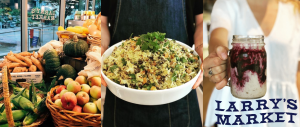
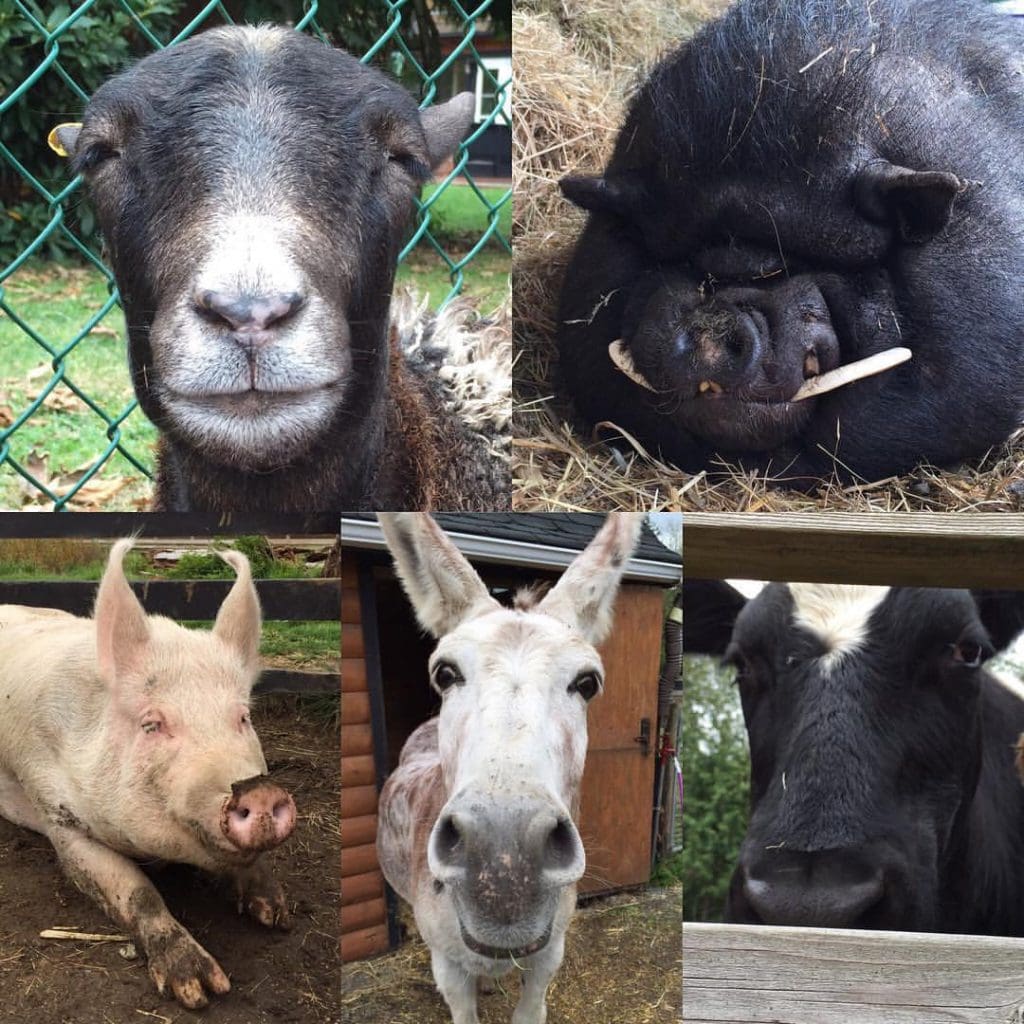






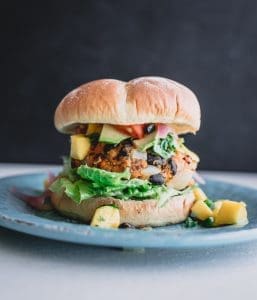 Back in 2016, Cambridge University made the decision to remove beef and lamb from its campus menus and offer more plant-based dishes in an effort to reduce its food-related emissions.
Back in 2016, Cambridge University made the decision to remove beef and lamb from its campus menus and offer more plant-based dishes in an effort to reduce its food-related emissions.
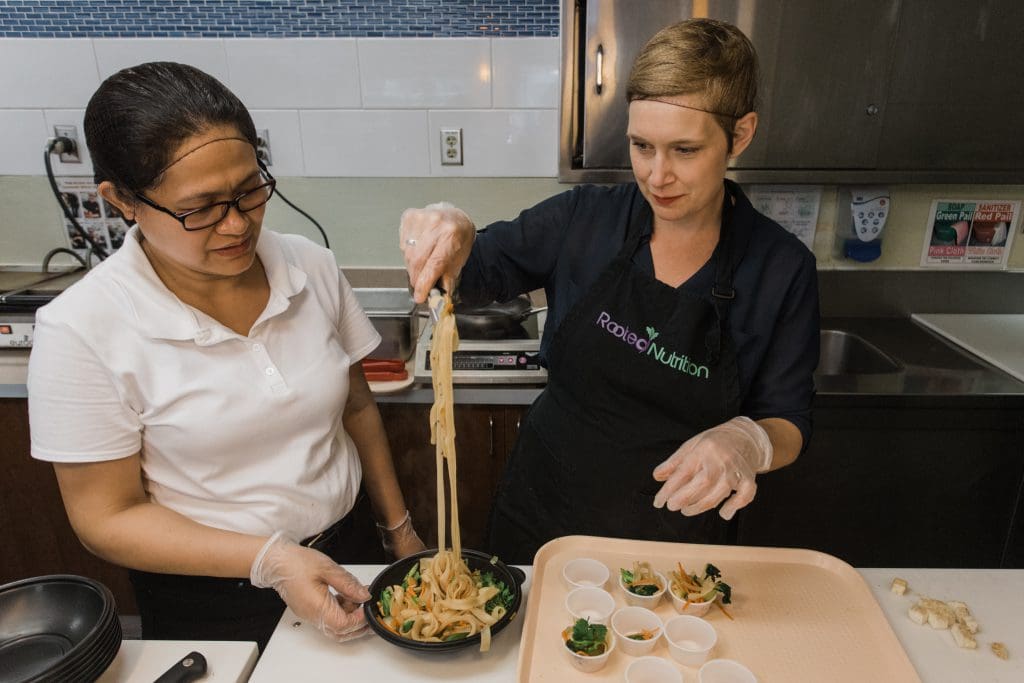


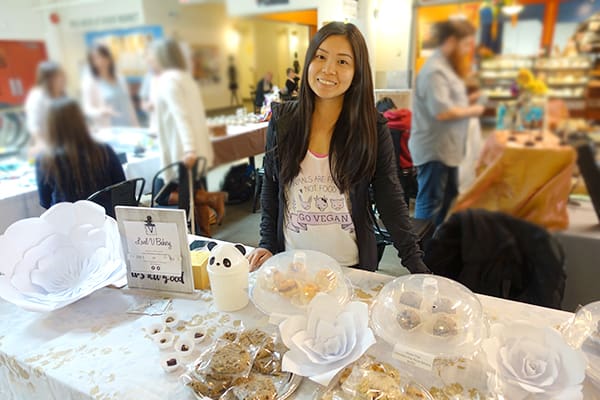
 I always had dabbled in baking, but it wasn’t until January of 2017 that I took it more seriously, after my vegan BFF Maria ordered my very first cake.
I always had dabbled in baking, but it wasn’t until January of 2017 that I took it more seriously, after my vegan BFF Maria ordered my very first cake.